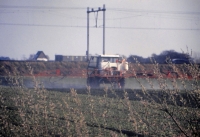 Europe is divided into 4 zones for authorisation of pesticides in the new Regulation 1107/2009. For instance, the Chech Republic will also get market access in another country of the zone like Belgium. Member States only have a few possibilities to restrict the zonal authorisation.
Europe is divided into 4 zones for authorisation of pesticides in the new Regulation 1107/2009. For instance, the Chech Republic will also get market access in another country of the zone like Belgium. Member States only have a few possibilities to restrict the zonal authorisation.
Zonal authorisation crates the big problem of industry "shopping" between Member States. Industry can give priority to those countries having an industry-friendly policy, having national authorisation bodies which are low on human resources and being no match for industry and having national authorisation bodies that are desperately trying to survive in the competition with other bodies and ready for compromise. A race to the bottom. The industry already makes use of the competition and tries to press bodies to do the absolute minimum calling parts of the assessment "national interpretation" and not necessary. For instance, an assessment of pesticides that will meet national water quality standards is called "national interpretation" and should be dropped according to industry.
European Commission has a policy of fair stakeholder representation and transparency. While also in Commission much can be improved here, many Member states have a less fair stakeholder representation and transparency. Especially on pesticides many Member States representatives (traditionally dominated by people from agriculture ministries) have a close relationship with industry and tend to keep other stakeholders at a distance. A fair and balanced stakeholder policy is one of the things PAN-Europe likes to achieve now that zonal authorisation takes shape.
Useful information
- Draft guidance document on zonal authorisation (SANCO, August 2010)
- Draft guidance on work-sharing in zones (SANCO, August 2010)
- PAN-Europe comments on zonal authorisation and mutual recognition (August 2010)